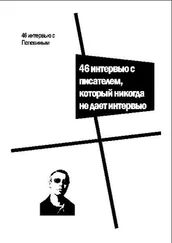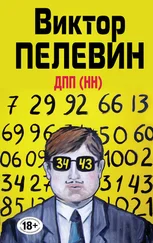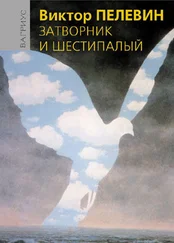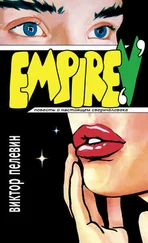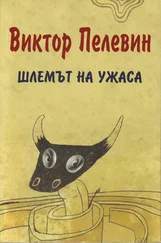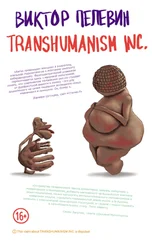Виктор Пелевин - Buddha's Little Finger
Здесь есть возможность читать онлайн «Виктор Пелевин - Buddha's Little Finger» весь текст электронной книги совершенно бесплатно (целиком полную версию без сокращений). В некоторых случаях можно слушать аудио, скачать через торрент в формате fb2 и присутствует краткое содержание. Жанр: Современная проза, на английском языке. Описание произведения, (предисловие) а так же отзывы посетителей доступны на портале библиотеки ЛибКат.
- Название:Buddha's Little Finger
- Автор:
- Жанр:
- Год:неизвестен
- ISBN:нет данных
- Рейтинг книги:5 / 5. Голосов: 1
-
Избранное:Добавить в избранное
- Отзывы:
-
Ваша оценка:
- 100
- 1
- 2
- 3
- 4
- 5
Buddha's Little Finger: краткое содержание, описание и аннотация
Предлагаем к чтению аннотацию, описание, краткое содержание или предисловие (зависит от того, что написал сам автор книги «Buddha's Little Finger»). Если вы не нашли необходимую информацию о книге — напишите в комментариях, мы постараемся отыскать её.
Buddha's Little Finger — читать онлайн бесплатно полную книгу (весь текст) целиком
Ниже представлен текст книги, разбитый по страницам. Система сохранения места последней прочитанной страницы, позволяет с удобством читать онлайн бесплатно книгу «Buddha's Little Finger», без необходимости каждый раз заново искать на чём Вы остановились. Поставьте закладку, и сможете в любой момент перейти на страницу, на которой закончили чтение.
Интервал:
Закладка:
I too felt myself falling under the hypnotic influence of inv minent danger. Chapaev began explaining something to two soldiers and I went over to the nearest horse and sank my fingers into his mane. I can recall that second perfectly - coarse hairs under my fingers, the slightly sour smell of a new leather saddle, a spot of sunlight on the wall in front of my face and a quite incredible, incomparable feeling of the completeness, the total reality of this world. I suppose it was the feeling which people attempt to express in phrases like living life to the full’, it lasted for no more than a single brief second, but that was long enough for me to realize yet again that this full, authentic sense of life can never, by its very nature, last any longer.
‘Petka!’ Chapaev shouted behind me. ‘Time to be off!’
I slapped the horse on the neck and set off towards the carriage, glancing sideways at the tachanka, in which Kotovsky and Anna were already seated. Anna was wearing a white peaked cap with a red band and a simple soldier’s blouse with a narrow belt on which hung a small suede holster; her blue riding breeches with the narrow red piping were tucked into high lace-up boots. Decked out in that fashion, she looked unbearably young, almost like a schoolgirl. When she caught my glance, she turned away.
Chapaev was already in the carriage. Sitting in front was the silent Bashkir, the same one who had poured the champagne in the train and later had almost skewered me with his bayonet as he stood on his absurd guard duty over a haystack. As soon as I had taken my seat, the Bashkir jerked the reins, clicked his tongue and we rolled out through the gates.
Travelling behind us came the tachanka with Kotovsky and Anna, followed by the cavalrymen. We turned to the right and set off up the road, which rose steeply, then curved to the right into a green wall of foliage.
We drove into something like a tunnel, formed by branches that wove themselves together above the road - the trees were rather strange, rather more like overgrown bushes than real trees; the tunnel proved to be very long, or perhaps I had that impression because we were moving slowly. Sunlight filtered through the branches and glinted in the final drops of the morning dew. The brilliant green of the foliage was so dazzling that at one point I completely lost all orientation and I felt as though we were falling slowly down a bottomless green well. I closed my eyes and the feeling passed.
The thickets on each side of us came to an end as abruptly as they had begun and we found ourselves on an earth road leading uphill. On the left there was a shallow rocky slope, on the right a weathered stone cliff of an incredibly beautiful pale lilac colour, with little trees sprouting here and there in i racks in the stone. We continued our ascent for about a quarter of an hour.
Chapaev sat with his eyes closed and his hands clasped together on the handle of his sabre, which was thrust against (he floor. He seemed to be absorbed in profound thought on some subject, or to have fallen into a light sleep. Suddenly he opened his eyes and turned towards me.
‘Are you still suffering from those nightmares you were complaining about?’ he asked.
As always, Vasily Ivanovich,’ I replied.
And still about that clinic?’
‘Oh, if they were only about that. As in every dream, everything changes at a most fantastic pace. Last night, for instance, I dreamed about Japan. But the night before I did dream about the clinic, and do you know what happened? That butcher in charge of everything that goes on there asked me to write down in detail what happens to me here. He said he needed it for his work. Can you imagine it?’
‘I can.’ said Chapaev. ‘Why don’t you do as he says?’
I stared at him in amazement.
‘You mean to say you would seriously advise me to do it?’
He nodded.
‘But why?’
‘You told me yourself that in your nightmares everything changes with fantastic speed. Any consistent activity that you repeatedly come back to makes it possible to create something like a fixed centre to the dream. Then the dream becomes more real. You couldn’t possibly think up any better idea than making notes in your dream.’
I pondered the idea,
‘But what good is a fixed centre to my nightmares if what I really want is to get rid of them?’
‘It’s precisely in order to get rid of them - you can only gel rid of something that is real.’
‘I suppose so. You mean, then, that I can write down absolutely everything that takes place here?’
‘Of course.’
‘But what should I call you in this journal of mine?’
Chapaev laughed.
‘Petka, it’s no accident you’re dreaming about a mental hospital. What difference does it make what you call me in the notes you make in a dream?’
‘That’s true enough,’ I said, feeling like a complete fool. ‘I was simply afraid that… No, there really must be something wrong with my head.’
‘Call me any name you like,’ said Chapaev. ‘Even Chapaev, if you like.’
‘Chapaev?’ I asked.
‘Why not? You can even write,’ he said with a chuckle, ‘that I had a long moustache, and after I said that I twirled it.’
He twirled his moustache with a gentle, precise movement of his fingers.
‘But I think the advice you were given applies more to reality,’ he said. ‘You should start writing down your dreams, and you should try to do it while you can still remember all the details.’
‘They are quite impossible to forget,’ I said. ‘Every time I come round, I realize that it was no more than a nightmare… But while I am dreaming, it’s impossible to understand what is real in actual fact - the carriage we are sitting in or that white-tiled hell where demons in white coats torment me at night’
‘What is real in actual fact?’ Chapaev repeated after me, closing his eyes again. ‘That’s a question you’re not likely to find an answer to. Because in actual fact there is no actual fact.’
‘How do you mean?’ I asked.
‘Well now, Petka my lad.’ said Chapaev, ‘I once used to know a Chinese communist by the name of Tzu-Chuang, who often dreamed the same dream, that he was a red butterfly fluttering through the grass and the flowers. And when he woke up, he often couldn’t make out whether the butterfly had dreamt it was engaged in revolutionary activity or the underground activist had had a dream about flitting through the air from flower to flower. So when this Tzu-Chuang was arrested in Mongolia for sabotage, what he said at his interrogation was that he was actually a butterfly who was dreaming about what was happening. Now since he was interrogated by Baron Jungern himself, and the Baron is a man of some considerable understanding, the next question was why this butterfly was on the communist side. Fie said he wasn’t on the communist side at all. So then they asked him why the butterfly was engaged in sabotage, and his answer was that all the things people do are so monstrous, it doesn’t make any difference whose side you’re on.’
‘And what happened to him?’
‘Nothing. They just stood him up in front of a firing squad and woke him up.’
‘And then what?’
Chapaev shrugged.
‘He carried on flitting around the flowers, I suppose.’
‘I understand, Vasily Ivanovich, ‘I understand.’ I said thoughtfully.
The road made another looping turn, and a dizzying view of the town opened up on our left. I spotted the yellow dot of our manor-house and the bright green patch of low trees which it had taken us so long to traverse. The shallow mountain slopes on all sides came together at their base to form a kind of chalice-shaped depression, and lying on the very bottom of the chalice was Altai-Vidnyansk.
Читать дальшеИнтервал:
Закладка:
Похожие книги на «Buddha's Little Finger»
Представляем Вашему вниманию похожие книги на «Buddha's Little Finger» списком для выбора. Мы отобрали схожую по названию и смыслу литературу в надежде предоставить читателям больше вариантов отыскать новые, интересные, ещё непрочитанные произведения.
Обсуждение, отзывы о книге «Buddha's Little Finger» и просто собственные мнения читателей. Оставьте ваши комментарии, напишите, что Вы думаете о произведении, его смысле или главных героях. Укажите что конкретно понравилось, а что нет, и почему Вы так считаете.

